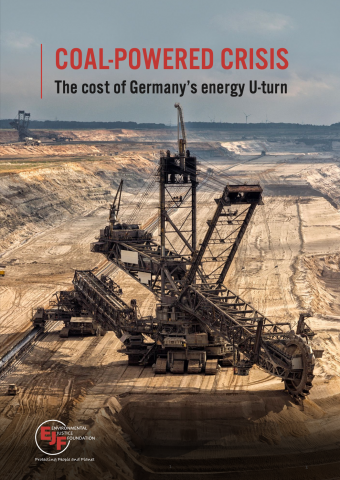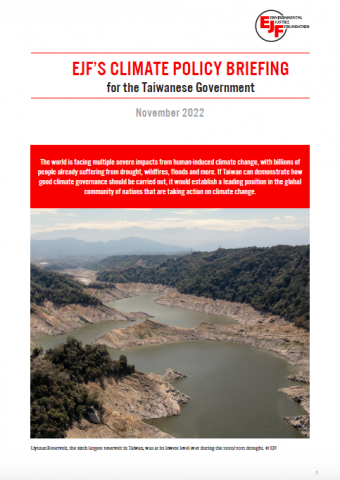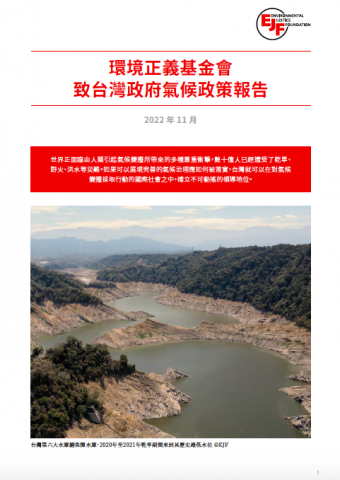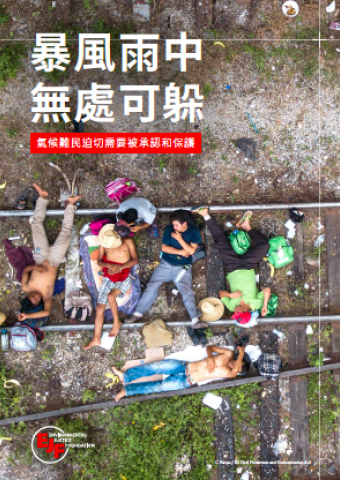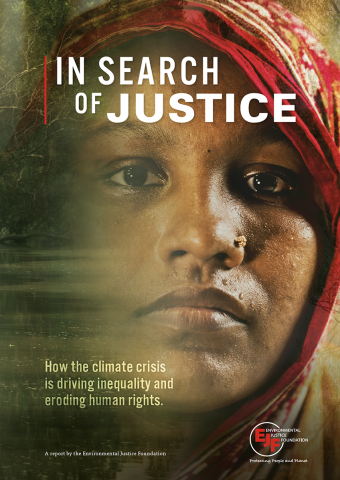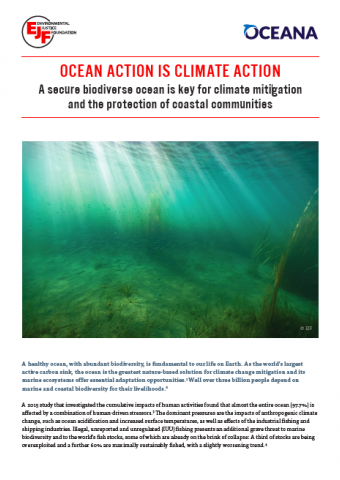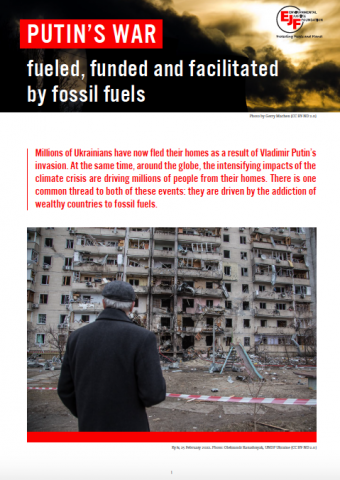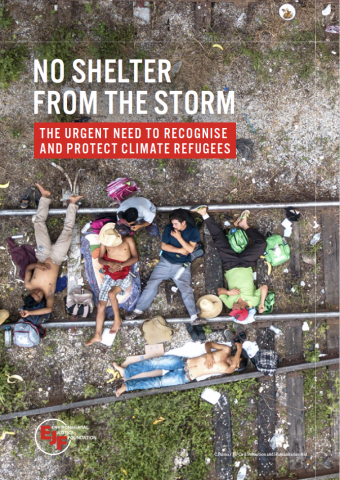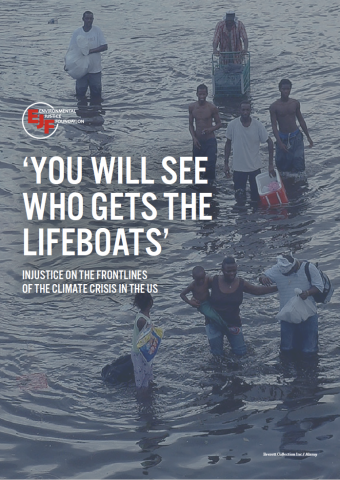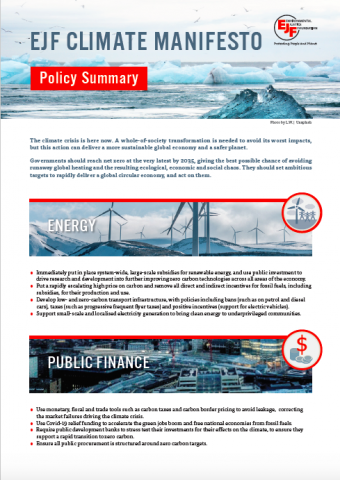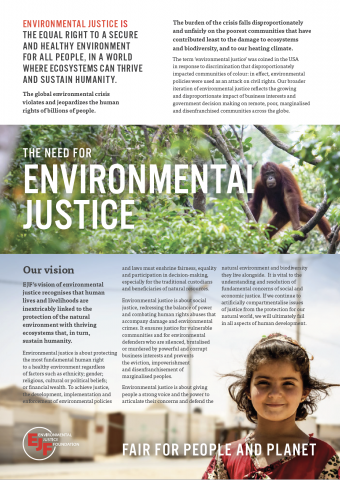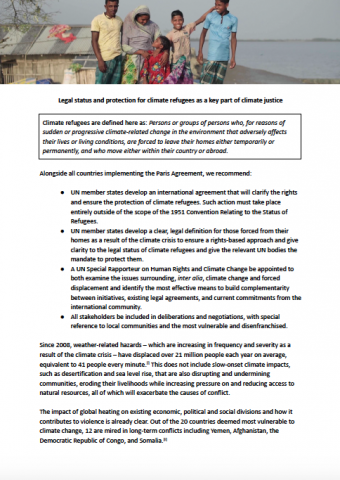Coal-powered crisis: The cost of Germany’s energy U-turn: This briefing analyses Germany's recent increased reliance on coal, and what consequences this has for meeting the country's legally binding climate commitments. It focuses on the coal phase-out and the energy transition in Germany, making recommendations for the German Federal Government to phase out coal-fired power generation by 2030.
In search of justice: How the climate crisis is driving inequality and eroding human rights: This report highlights how the climate crisis is fuelling inequalities within and between countries worldwide, with low-income, marginalised people in both developed and developing countries being disproportionately affected by climate breakdown.
Ocean action is climate action: A secure biodiverse ocean is key for climate mitigation and the protection of coastal communities: This policy briefing by the Environmental Justice Foundation (EJF) and Oceana lists actions the German G7 Presidency should take to achieve a 30x30 ocean protection plan which safeguards biodiversity, advances the goals of the Paris Agreement and protects the human rights of coastal communities.
Putin's war: fuelled, funded and facilitated by fossil fuels: Millions of Ukrainians have now fled their homes as a result of Vladimir Putin’s invasion. At the same time, around the globe, the intensifying impacts of the climate crisis are driving millions of people from their homes. There is one common thread to both of these events: they are driven by the addiction of wealthy countries to fossil fuels.
No shelter from the storm: The urgent need to recognise and protect climate refugees: Legal protections for those forced from their homes by the climate crisis are patchy and not fit for purpose. This report, which examines international frameworks that touch on the issue, found that definitions are vague, and protections are inconsistent.
